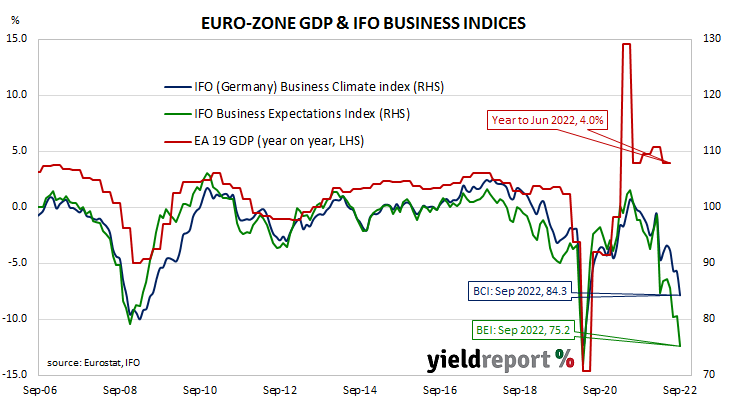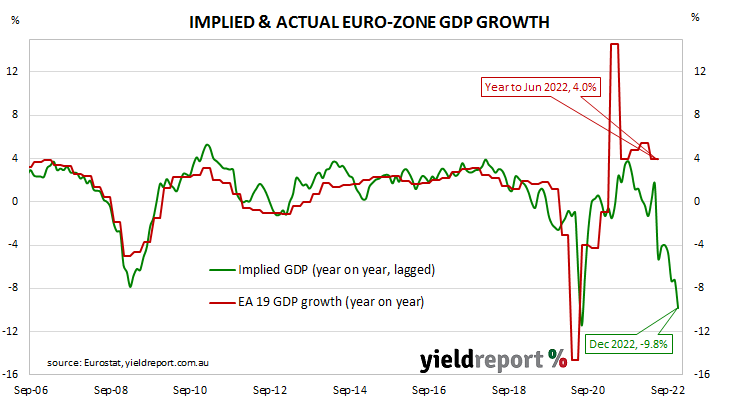Summary: ifo business climate index down again in September, below expected figure; German companies’ business “clearly worse”, economy “slipping into recession”; current conditions index, expectations index both down again; expectations index implies euro-zone GDP contraction of 9.8% in year to December.
Following a recession in 2009/2010, the ifo Institute’s Business Climate Index largely ignored the European debt-crisis of 2010-2012, mostly posting average-to-elevated readings through to early-2020. However, the index was quick to react in the March 2020 survey, falling precipitously. Readings through much of 2021 generally fluctuated around the long-term average before dropping away this year.
According to the latest report released by ifo, German business sentiment has deteriorated even further and is only slightly better than it was in April 2020. September’s Business Climate Index recorded a reading of 84.3, lower than the consensus expectation of 86.0 as well as August’s final reading of 88.6. The average reading since January 2005 is just above 97.
Companies assessed their current business as clearly worse,” said Clemens Fuest, President of the ifo Institute. “Pessimism regarding the coming months has grown decidedly; in retail, expectations have fallen to a record low. The German economy is slipping into recession.
German firms’ views of current conditions and the outlook both deteriorated again. The current situation index fell from August’s revised figure of 97.5 to 94.5 while the expectations index eased from 80.5 to 75.2.
German and French long-term bond yields both rose noticeably on the day, dragged up by spiking British gilt yields. By the close of business, the German bund yield had gained 12bps to 2.08% and the French 10-year bond rates had added 12bps to 2.66%.
The ifo Institute’s business climate index is a composite index which combines German companies’ views of current conditions with their outlook for the next six months. It has similarities to consumer sentiment indices in the US such as the ones produced by The Conference Board and the University of Michigan.
It also displays a solid correlation with euro-zone GDP growth rates. However, the expectations index is a better predictor as it has a higher correlation when lagged by one quarter. September’s expectations index implies a 9.8% year-on-year GDP contraction to the end of December.



